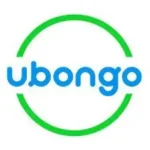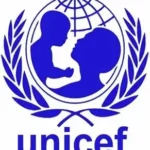Job Description
Terms of Reference (ToR):
Training on Result Based Management (RBM), Monitoring, Evaluation and Learning
Responsible: MEL Manager
Dates : Monday August 5th-Wednesday 7th 2024 (3 days)
Subject RBM FACILITATOR AND MEL TRAINER
Consultancy Duration: 3 Days
Location of activity: HYBRID (REMOTE AND IN PHYSICAL)
- BACKGROUND
UBONGO is Africa’s leading producer of kids’ edutainment. As a non-profit social enterprise, we create fun, localized, and multi-platform educational content that helps kids learn, and leverage their learning to change their lives. Ubongo reaches over 27 million kids across Africa through accessible technologies like TV, radio, and mobile phones. Our shows Ubongo Kids and Akili and Me currently air in 23 countries across Africa in multiple languages. Our vision is to equip Africa’s next generation with the educational foundation, critical skills, and positive mindsets to change their lives and communities for the better. Ubongo’s new Strategic Plan covers the period 2024-28 strategic plan was developed with the ultimate aim of scaling our impact across Africa by 2028.
- INTRODUCTION
To achieve this vision, Ubongo’s Monitoring, Evaluation, and User Research Strategy (as detailed in the Ubongo/IPA Partnership) is to enable measurement of Strategic Results and OKRs through a clear definition of expectations, targets, indicators, collection of essential data, to monitor and evaluate levers for change. Ubongo is committed to improving its performance and achieving development results and therefore is making efforts to improve the effectiveness, accountability, transparency, and efficiency of its programme management and delivery.
- The Ubongo MEL Readiness Assessment Report acknowledged the need to improve the Results Based Management Culture within the organization and to enhance staff’s knowledge and skills for the proper use of the Ubongo Monitoring and Evaluation System. Staff need to apply appropriate project and program management methods and tools for effective design, management, and measurement of results from projects and programs. Improving staff RBM capacity levels within the Organization has also been put forward in the new Strategic Plan document, and is a priority for the Board and Ubongo Leadership as we move towards delivering on the new Strategy.
- Ubongo uses a system of Objectives and Key Results (OKR’s) as a framework for goal setting and tracking metrics/ progress. Below are our company-level objectives and key results (KR’s) for 2022. Each Key Result has a cross-functional “KR Squad” made up of Ubongoers who work together to both set the strategy for that KR and implement it.
- OBJECTIVES OF THE CONSULTANCY
The goal of this training is to enhance the staff capacity in the area of results-based management targeting the areas of Planning, Monitoring, and Evaluation of projects Results; and linking the projects’ outcomes to the strategic portfolio of Ubongo and its associated MEL Plan.
The key learning objectives of this training process are:
- Improve understanding of results-based management and its importance for measuring, managing, and achieving results at Ubongo.
- Strengthen Team skills in measuring results under the Revised Ubongo MEL Plan.
- Improve readiness and preparedness of the team to effectively implement the MEL Plan.
- SCOPE OF WORK
The tasks to be undertaken by the consultant will be as follows:
Before the training:
- Work with the Ubongo Team to:
- Review key Ubongo strategic documents
- Conduct short training RBM and MEL training pre-assessment test
- Involve Team Leaders and Directors in the design of the training programme to ensure inclusion of relevant Ubongo examples to increase ownership.
- Design systematic instructions to ensure: (i) identification of desirable learning outcomes, (ii) statement of trainee-oriented objectives for each session, and (iii) ideal approaches for the learning.
- Develop trainee readiness materials like a simple flyer, videos, etc aimed towards achieving Ubongo’s strategic goals and the self-assessment exercises.
During the training:
- Work with the participants to develop application-oriented objectives with behavioral statements guiding participants to think of what they will do beyond the respective sessions.
- The same objectives should be used to start formulation of an Action Plan and eventually an RBM Plan with assignments to all participants as either individuals or small groups.
- Give individualized feedback to participants – using feed-forward guidance that will help trainees know what they will do and how to integrate the learning in their respective KR Squads.
- Develop and provide participants with learning transfer aids – containing key points/steps covered during each training session.
- Upload all learning materials on Ubongo Google Drive point for future reference and replication.
After the training:
- Conduct training evaluations and give feedback: one evaluation immediately to participants and one to the COO at submission of consultancy report.
- Use the evaluation and feedback data to design simple recommendations and future sessions with a summary of the essential concepts and skills trainees (i.e., TOT materials/guidance notes) will need for cascading events in the fourth quarter of 2024.
Table 1: Structure of the training:
The structure of the course and specific topics addressed during the training are as follows:
Day 1: RBM Training (C Suite, Directors and Team Leads + Team member )
Number of Attendees (38 People):
Monday August 5 2024
- Understanding Results-Based Management (RBM):
- Principles of RBM and essential structures and processes in RBM at Ubongo.
- Diagnosing strengths, weaknesses, and gaps in RBM within Ubongo.
- Creating a results-oriented culture at Ubongo.
- Aligning RBM with organizational strategy
- Skills Development for Effective Results Management:
- Key skills required for RBM
- Importance of effective leadership in RBM.
- Strategies for developing RBM skills (self-reflection, lifelong learning, mentorship)
- Analyzing real-world RBM success stories.
Day 2: RBM Training (C Suite, Directors and Team Leads + Team member )
Number of Attendees (38 People):
Tuesday August 6 2024
- Communication and Team Building:
- Understanding the Different audiences
- Effective results communication strategies,Feedback, emotional intelligence.
- Engaging stakeholders through clear communication.
4. Introduction to the Ubongo MEL Plan:
- What is MEL all about and why is it important to Ubongo?
- Review of the key components of the MEL Plan and Path to Scale (PtS)
- KPIs and Insights for tracking progress and assessing results.
- Key Reports and Use of results in programming and decision making
Day 3: Implementing Ubongo MEL Plan- (Team members involved in Data Collection/Analysis)
Number of Attendees (20 People):
Wednesday August 7 2024
- Data Collection for the Ubongo MEL Plan:
- Types and sources of data we’re collecting,
- Methods involved in data collection.
- Ubongo MEL Plan learning approaches and data collection tools
- Standard Operating Procedures for ensuring quality of our data
- Your role and responsibility in relation to MEL implementation
- Monitoring Activities within the MEL Plan:
- Routine monitoring processes.
- Using monitoring data for decision-making.
- Evaluation Approaches:
- Planned Mid-term and final evaluations for projects.
- Evaluating project impact and effectiveness.
- Reporting Using and Learning from Evidence :
- Types of reports and reporting timelines
- Use of results in programming and decision making (Recap)
- Action Planning:
- Developing an action plan for MEL implementation.
- DURATION
The training will be conducted over several sessions lasting 3 days structured as follows:
- Day 1 and 2- RBM Training (38 People)
- Day 3- MEL Plan Implementation (20 People)
The facilitator will be given time to review, prepare and write a training afterwards as part of the consultancy deliverables.
- FACILITATION
The training will be facilitated over 3 full working days by an individual Results Based Management Training Consultant.
- LOGISTICS
Training logistics and other associated training requirements such as venue, and training will be supplied by Ubongo.
- QUALIFICATIONS AND EXPERIENCE
- Advanced degree in statistical analysis, social sciences, planning development, planning economics or development economics, education (media related), development studies, public administration, or related fields.
- Minimum of 10 years of relevant work experience in edutainment monitoring training and facilitation.
- Proven track record in facilitation of training in the fields of Results Based Management. References may be requested.
- Experience in participatory facilitation methodologies and familiarity with visual and creative aids to ensure participants’ engagement.
- Excellent communication and organization skills.
- SELECTION CRITERIA
Technical proposal – including methodology, draft agenda and timeline, list of learning material to be provided to all participants, topics to be covered, and presentations, exercises, and activities to be included.
Financial proposal – deliverable-based proposal.
- DELIVERABLES
- Agenda and debriefing presentation to management on training outline.
- Delivery of training content,
- handover of learning materials, evaluation of the training;
Table 2: Deliverables
Phase. Action Deliverable Payment Schedule
Inception Review and Preparation Inception Report and Slides 25%
Training Plenary and Group Work Actual training and 3 Days Training Report. 50%
Evaluation and Reporting Debriefing and Uploads Training Evaluation Report 25%
- APPLICATION PROCESS AND DEADLINES
To apply, please send the following items to phillip@ubongo.org copying clio@ubongo.org by CoD Sunday 28 July 2024.
- 1 Cover letter (1 Page)
- CV (maximum 3 pages)
- 5 Page methodology outlining your approach.
- 1 Sample Similar Report (for work led and written yor letter (maximum 1 A4 page) explaining your interest in the role and why yourself.
NB: Please note that only shortlisted candidates will be notified.





